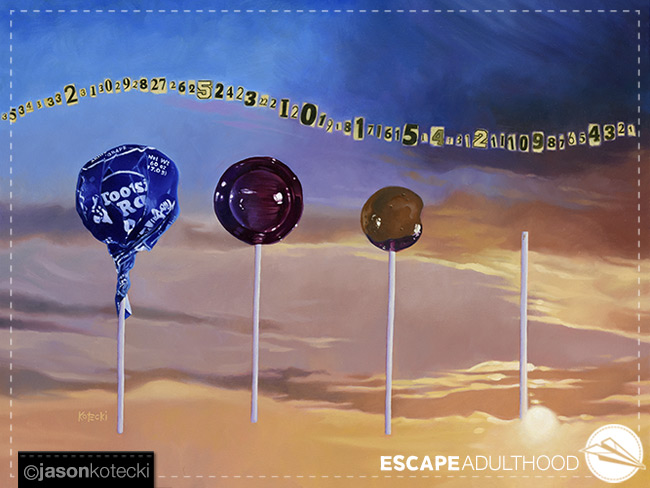
The two angels in the back row wearing yellow t-shirts and gold tinsel halos were mine.
My two youngest kids were in a musical as part of our homeschool co-op. It was the first time on stage for both of them. We went to both performances and they did great!
Naturally, opening night was filled with nervous excitement and hyperactive butterflies. There were no noticeable gaffs or forgotten lines from anyone. It was an impressive effort.
The second day was different. Still good, but some missed cues and forgotten lines that added awkward uncomfortability.
One might think the second night should have been better because the cast is even more experienced (even if only by one performance) and they have the confidence from proving to themselves that they could do well in front of a live audience.
I have a theory for this drop-off. The reason night one of the play was better was because the nervous energy kept them sharp. Perhaps the confidence from nailing the first performance led to cockiness, fooling them into thinking they could coast on the second show, causing them to lose their focus.
Of course, these are kids I’m talking about. Amateurs. They really did an amazing job. But they gave me an example we can all learn from. You see, the reason for my confidence in my assessment is because I have experienced it.
In my career of over one thousand speeches, there have been moments when I caught myself going through the motions. The speech was fine, but it wasn’t great. I forgot some good lines. I wasn’t as sharp on a few stories as I could have been. I like to think the audience never noticed, but they probably did. Even if they didn’t, I robbed them of something better.
At some point, I changed my mindset and it has made all the difference.
As I get close to taking the stage, I now act as if this is the last speech I’ll ever give. This simple reframe helps me filter out a lot of noise. It keeps me from looking ahead to the next speech and comparing this audience to the last one. None of it matters anymore, because this is it.
This technique helps keep me from taking any of it for granted. My performance, and the audience I’m serving, are better off because of it.
We can never recapture the butterflies and excitement of the first time we do something. But we can resurrect some of the electricity and intentionality of that experience by considering it might be the last time we do it.
What if this is the last class you’ll ever teach?
What if this is the last meal you’ll ever prepare?
What if this is the last table you’ll ever build?
What if this is the last patient you’ll ever serve?
What if this is the last person you’ll ever help?
It takes significant effort to put yourself in this headspace each time. But what a difference it makes in your ability to focus and be fully present in the moment.
Yes, in a certain respect, you’re tricking your brain over and over again.
But the truth is, one of these days you’ll be right.
🤔 I wonder…what is something you do often that could benefit from a mindset shift like this?